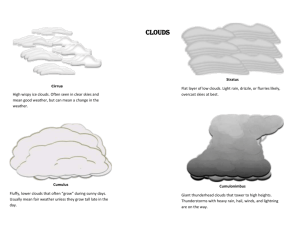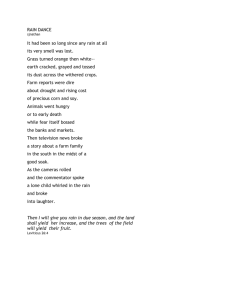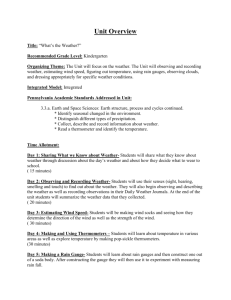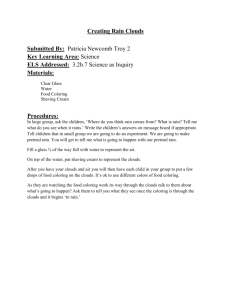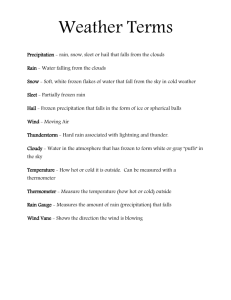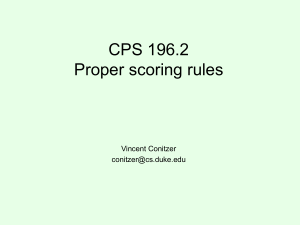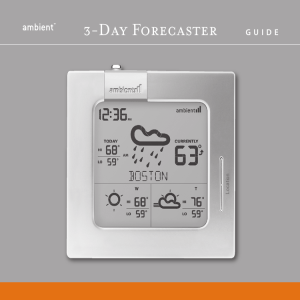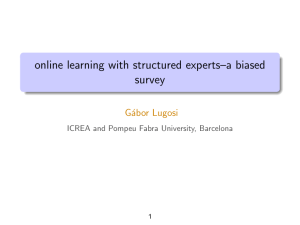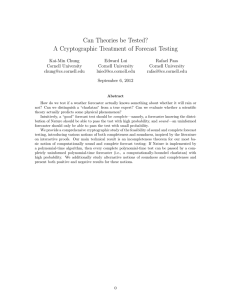Weather Forecasting Probability Worksheet
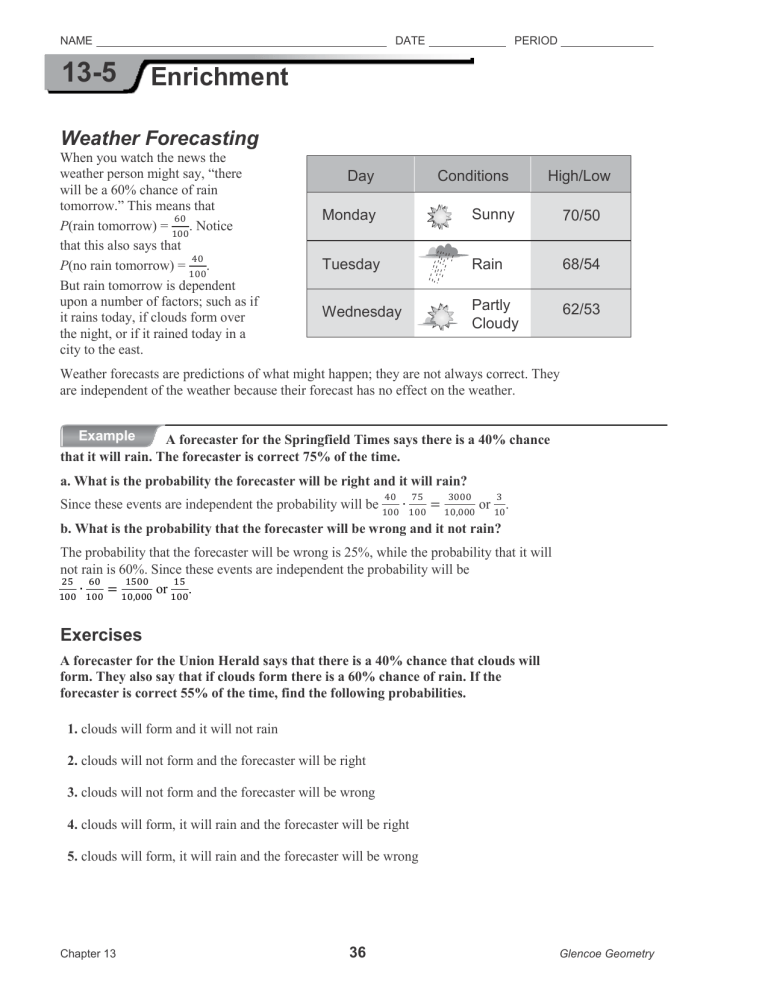
NAME
13-5
Enrichment
DATE PERIOD
Weather Forecasting
When you watch the news the weather person might say, “there will be a 60% chance of rain tomorrow.” This means that
60
P (rain tomorrow) =
100
. Notice that this also says that
40
P (no rain tomorrow) =
100
.
But rain tomorrow is dependent
Day
Monday
Tuesday
Conditions
Sunny
Rain
High/Low
70/50
68/54
Wednesday
Partly
Cloudy
upon a number of factors; such as if it rains today, if clouds form over the night, or if it rained today in a city to the east.
Weather forecasts are predictions of what might happen; they are not always correct. They are independent of the weather because their forecast has no effect on the weather.
62/53
Example
A forecaster for the Springfield Times says there is a 40% chance that it will rain. The forecaster is correct 75% of the time.
a. What is the probability the forecaster will be right and it will rain?
40
Since these events are independent the probability will be
100
∙
75
100
=
3000
10,000
or
3
10
.
b. What is the probability that the forecaster will be wrong and it not rain?
The probability that the forecaster will be wrong is 25%, while the probability that it will not rain is 60%. Since these events are independent the probability will be
25
100
∙
60
100
=
1500
10,000
or
15
100
.
Exercises
A forecaster for the Union Herald says that there is a 40% chance that clouds will form. They also say that if clouds form there is a 60% chance of rain. If the forecaster is correct 55% of the time, find the following probabilities.
1.
clouds will form and it will not rain
2.
clouds will not form and the forecaster will be right
3.
clouds will not form and the forecaster will be wrong
4.
clouds will form, it will rain and the forecaster will be right
5.
clouds will form, it will rain and the forecaster will be wrong
Chapter 13
36
Glencoe Geometry
